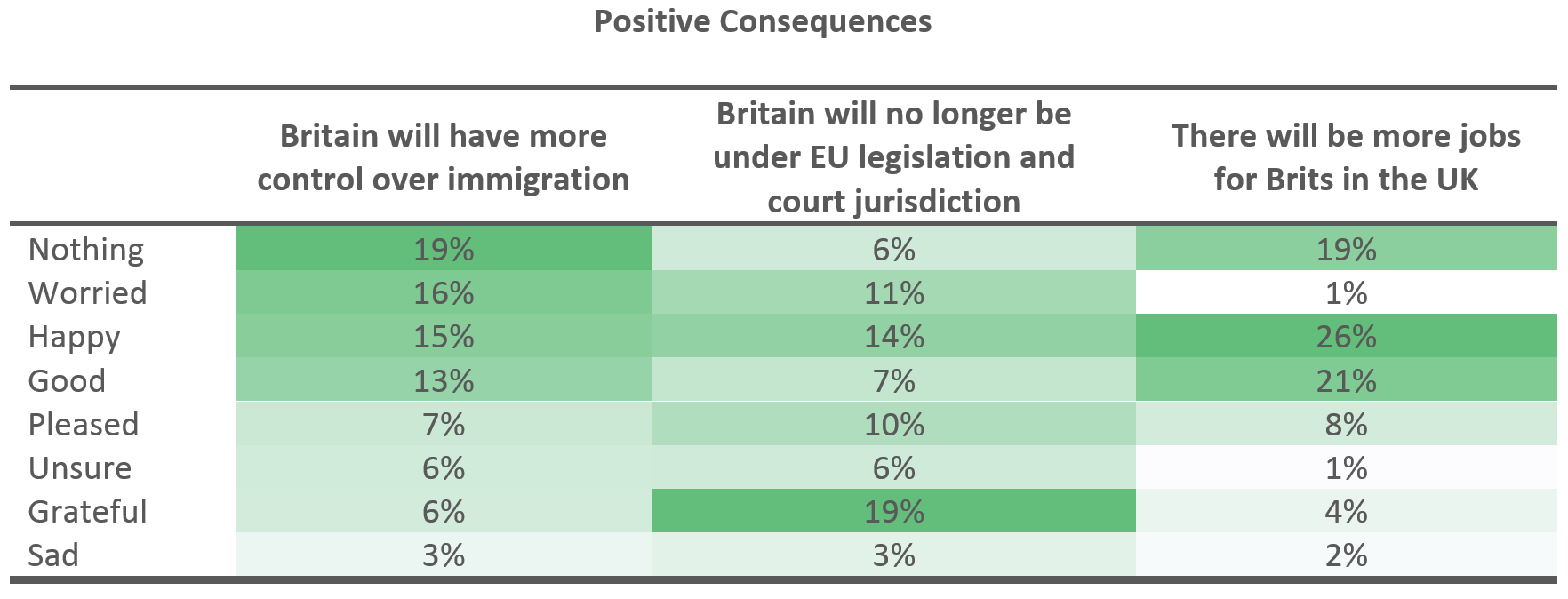Emotalizer: Brexit Consequences
Posted: 10/10/2018

“Brexit’s impact on job opportunities in the UK found to evoke strong emotion in the British public”

With calls for a people’s vote on any final Brexit deal, we took a fresh look at the British public’s feelings towards Brexit. With the outcomes still unclear, we want to understand which potential consequences evoke emotional responses. We therefore asked respondents the main emotion they feel about one of three positive and one of three negative potential consequences.
Comparing reactions to positive versus negative consequences, we find that the supposedly positive outcomes are not deemed as such by all. This is particularly true of Britain’s increased control over immigration, which evokes positive emotions in only 42% of the public. The negative consequences do not show this ambiguity. The strongest negative reaction is 85%, evoked by the possibility of lower standards of living due to post-Brexit inflation. In our past research, this level of negativity has only been reached by the prospect of North Korea possessing nuclear weapons.
These results reflect the psychological experience of loss aversion. People tend to place more value on losses than on equivalent gains, and therefore the losses associated with Brexit (i.e. current standard of living, freedom of movement, opportunities for career progression) all loom larger than the potential gains. With this in mind, we believe that once a deal is crystallised the groups who are unhappy with the deal will be more vocal and emotional than those who support it.

Looking specifically at positive consequences, the strongest positive emotions are evoked by increased jobs for Brits in the UK, with 59% citing a positive emotion and 26% reporting Happiness as their main emotion. In comparison, the emotional reaction towards Britain’s greater control over immigration shows a strong level of Worry. This contradicts the assertion by pro-Brexit groups that controlled immigration is a key benefit of Brexit from the public’s perspective. The lowest level of apathy is evoked by Britain no longer being under EU legislation, implying a genuine concern amongst the British public about being beholden to a remote bureaucracy in Brussels.
Brexit continues to be an emotive topic. Three weeks before the 2016 referendum we asked Brits the main emotion they would feel if the UK voted to leave the EU and saw a 52% negative response. However, the differentiation seen in this round of research shows the power of campaigns and the media to manipulate the public opinion by emphasising, or exaggerating, the likelihood of specific outcomes.